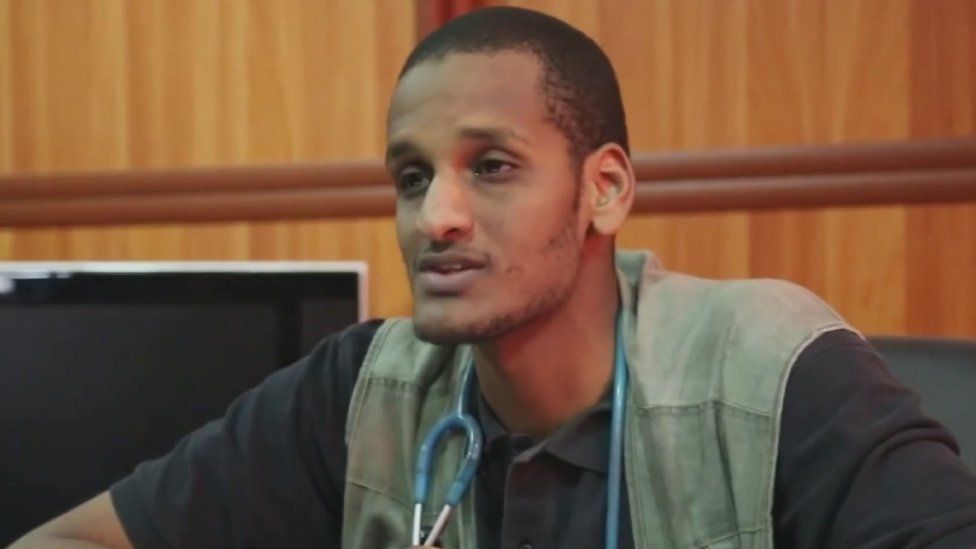Two British medics killed working for IS
- Published

Two British medics who were part of a large group of students who left their studies in Sudan to join so-called Islamic State have been killed in Iraq.
The BBC understands that Ahmed Sami Khider, from London, and Hisham Fadlallah, originally from Nottinghamshire, died at the weekend.
Khider is understood to have been in a convoy trying to leave Mosul when it was hit by gunfire.
It is not known if Fadlallah was killed in the same incident.
Khider had been working in Mosul, where there have been violent clashes as Iraqi forces try to retake the city from IS.
His parents have travelled to Khartoum, in Sudan, for a period of mourning.
The son of a doctor, Khider had been a student at Wallington County Grammar School in south London.
Like many other middle class Britons with a Sudanese family background, he took a degree in medicine in Khartoum, graduating in July 2014.
Eight months later, he was part of a group of nine students from the University of Medical Sciences and Technology (UMST) who left Sudan to join IS in Syria.
Seven of them were British and included Hisham Fadlallah and Khider's younger sister, Nada. They were followed into IS territory in June 2015 by five other Britons from UMST. At least four have since been killed.
'Use your skills'
Soon after arriving in Syria, Khider appeared in a slick propaganda film urging other Britons to travel to Syria and Iraq.
This was not the usual IS production with masked men posing in the streets with guns. Here was a softly spoken young man sitting behind a desk in a wood-panelled office with a stethoscope around his neck. That man was Ahmed Sami Khider.
Interspersed with footage of an MRI scanner and babies in incubators were shots of Khider teaching in an IS hospital.
Speaking to camera, he said: "All you are doing is sitting in the West in the comfort of your homes. Use your skills and come here."
A friend, who did not want to be identified, told the BBC that Khider was popular and influential on campus.
"All of the boys in particular looked up to him," he said. "They all listened to what he said and took it to heart. Everyone loved him. He became a leader."
Another fellow student said that Khider changed in 2013. The funny, outgoing young man became more serious and withdrew from his wider circle of friends.
By then he was under the influence of extremists, although UMST has always denied they operated on the Khartoum campus.
A BBC News investigation revealed how a British graduate was at the heart of the recruitment drive.
Mohammed Fakhri Al-Khabass - who grew up in Middlesbrough - used his position on the Islamic Cultural Association at UMST to urge students not to practise medicine in the West.
The dean of UMST told the BBC that Fakhri "played a major role in recruiting the students."
Fakhri's father later told the press that his son had brought shame on the family. Fakhri published an online statement in 2015 announcing that he was with IS in Syria and urging other Britons to follow.
- Published12 October 2017
- Published17 October 2017
- Published21 February 2017
- Published17 July 2015
- Published12 August 2016